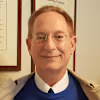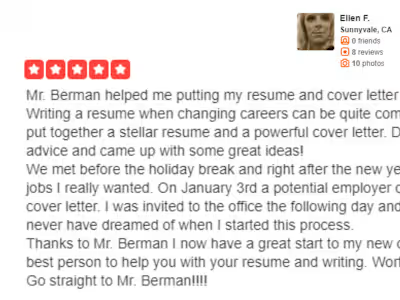Fundraising Speech for Stanford Prof Lands Millions in Donations
PROBLEM
Among my most interesting friends and clients is a refreshingly low-profile high-tech billionaire, Stanford electrical engineering Professor Emerita Teresa Meng, who has referred to me affectionately as a “childhood friend” (we met in her native country of Taiwan when she was in her teens and I was in my 20s).
While on the faculty at Stanford (I’m proud to say that I assisted her with both her original application to teach there and later her application for tenure, which she was granted), she founded a pioneering, groundbreaking wireless communication company named Atheros, which was later acquired by semiconductor giant Qualcomm in 2011 for an enterprise value (EV) of approximately $3.1 billion.
Teresa has succeeded spectacularly in a male-dominated field, earning more awards and accolades than you’d probably have the time to read. One of these was the prestigious IEEE Alexander Graham Bell Medal (she was the first female recipient), for her contributions and leadership in the development of wireless semiconductor technology. Prior to that, she had been named Innovator of the Year by the MIT Sloan Business School, to mention just one more of the many honors bestowed upon her.
She has hobnobbed with the likes of actor Richard Gere and the Dalai Lama, among other celebrities. Stanford University’s tenth president, John L. Hennessy, was so impressed with her startup idea that he joined the company as a co-founder, the only time he ever did this during his 16-year tenure as university president.
When Hennessy tasked her with fundraising for the university in Asia, she realized that she might have difficulty developing compelling speeches on her own for that purpose. As brilliant and gifted as Teresa is in so many ways, she is not a writer. That was the problem she faced.
SOLUTION
For the solution, I’m happy to say, Teresa turned to me. The main challenge for me (at least initially) was not the speechwriting itself but rather the fact that the rush request came in just as I was visiting my father out of town. Fortunately for me, Dad was very understanding about the situation and cheerfully allowed me to take time off to work on the speeches.
Writing a great speech starts with understanding the context. I ask the client to share with me what she thinks is important for me to know about the situation. What can she tell me about her audience? Beyond that, what is the speaker (my client) hoping to accomplish with the speech? Finally, what points does she have in mind for inclusion?
It's also important to know how much time is available for the speech, as well as the physical location. It’s not always advisable to use the maximum amount of time available but very often there will be a minimum number of minutes that a person will be expected to speak, to fit in with the event and any other speakers. The physical location can provide material for the speech, as well as some important considerations for the content.
The information presented in response to those questions is usually enough to produce a framework. I usually want to get the framework approved by the client before fleshing it out. The research and writing that go into a good speech can be quite time-consuming, so it’s important to avoid wasting any of that time, especially then there’s an immediately impending deadline.
After I have “buy in” from the client about the proposed framework, I usually do some additional “deep-dive” research into the topic. The additional details I come up with help give the speech a richness that take it beyond simply interesting to truly compelling. In addition to the revision work that occurs in the process of writing the speech, I will usually revise and rewrite multiple times after the initial creation of the entire draft. And, of course, I make revisions on the basis of client feedback and requests. We may do this asynchronously by email or in real time using Google Drive documents, whichever is more appropriate under the circumstances.
RESULT
The series of speeches to Stanford alums in different locations in Asia pulled in millions of dollars. Though I’m not privy to the exact number, I’ve been told that the tour was considered a tremendous success. The speeches were admittedly not the only reason for the success of the fundraising drive but they were almost certainly at least part of the reason.
The speech written for the event in Singapore is available for viewing from this link. Above, I offered a brief rundown of how I go about writing such a speech. Here I’ll offer some commentary about specific content considerations, which you can reference — if you wish — as you read through the text.
What do people remember the most about any speech? The beginning and the end. It’s especially important, then, that both the opening and closing words be well chosen.
What do people fear most as speech begins? That it might be boring! One good way to avoid that is to start out with some light-hearted humor, which of course must be appropriate to the nature of the event and the location where it’s being held, which is the case here.
Notice how this speech: (1) establishes a connection with the audience, by complimenting them, in a credible way, (2) promises them information that will be of interest to them (a promise that of course must be delivered upon) and (3) offers a three-part framework for what’s to come, which makes it easy for listeners to follow along — and helps hold their attention, in part because they’re aware that the speaker is not going to drone on endlessly.
This type of speech, a fundraising speech, requires a CALL TO ACTION at the end, to which the speaker has built up, with compelling reasons for the members of the audience to open their wallets: “It’s only through the support of people like you that this grand vision will become a reality.” Notice the double “circle back” closing, returning to two elements in the introductory section, the “lions” of Singapore and the reason Stanford needs alumni support (the third and final point of the framework). This neatly ties everything together with a nice ribbon, for maximum effect.
That’s the process and approach through which a successful speech is created. Stated simply, in a single word, the bottom line as to what ultimately made this particular work product successful is its high degree of persuasiveness. THE SAME GUIDING PRINCIPLE PROBABLY APPLIES TO WHATEVER PROJECT YOU MAY HAVE IN MIND AT THIS TIME: Regardless of the nature of the project, success will hinge upon effective messaging — PERSUASION of your audience, in other words, into believing what you are telling them. That’s the name of the game. It’s what I do and why they pay me the big bucks, so to speak.
Please note: The thumbnail photo of Prof. Meng delivering a speech was taken on a different occasion, as no photo of the alumni speech in Singapore was available.
Like this project
Posted Mar 20, 2024
Tasked with helping a Stanford engineering professor to fundraise in Asia for the university, I wrote speeches that brought in millions of dollars in donations.
Likes
0
Views
9








